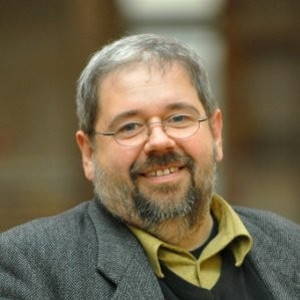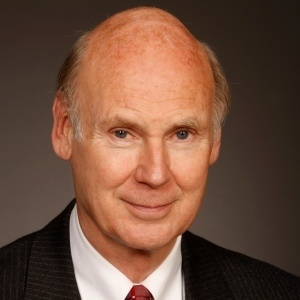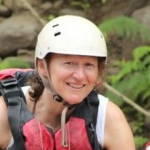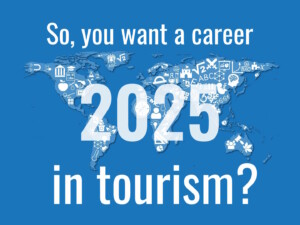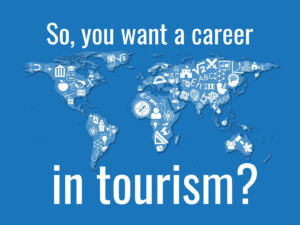“GT” Insight Bites: Want a career in tourism? Important things you should know
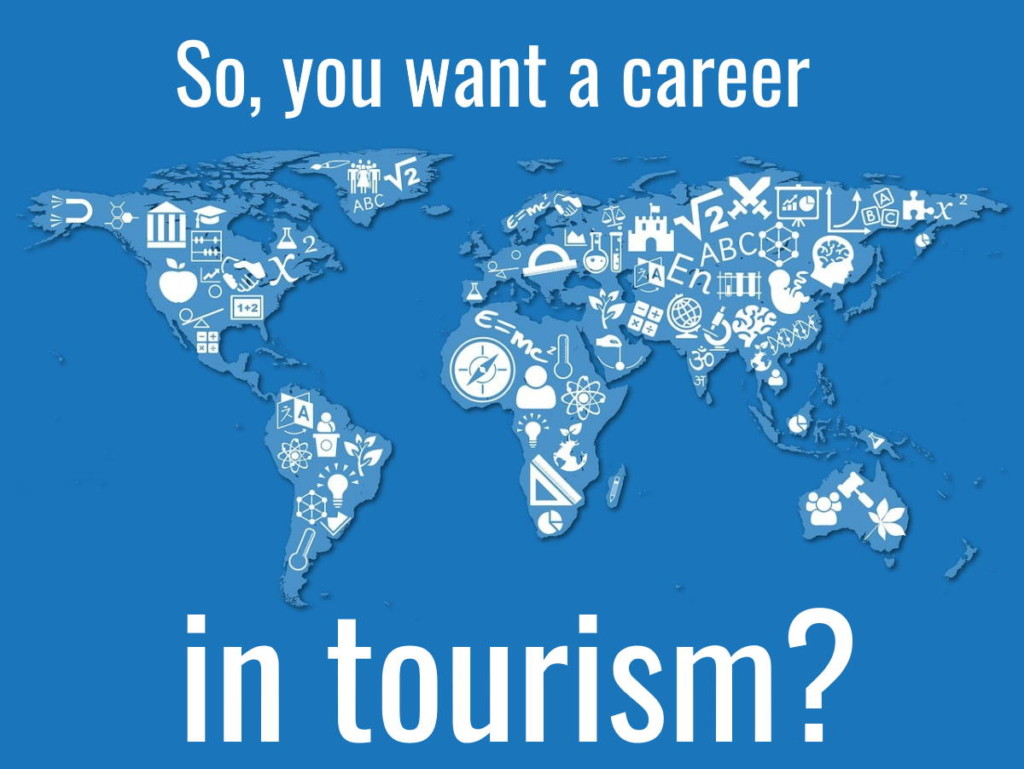
In 2022, what is the most important thing that a young person should understand before embarking upon a career in tourism?
For this “GT” Insight Bites, your correspondent put the question above to a range of travel & tourism stakeholders — “GT” Partners, guest authors, and their invitees — and invited written responses of up to 300 words.
My thanks to all 17 respondents.
Their answers appear in the order in which I received them.
- Saverio Francesco Bertolucci — Know your mission, embrace your vision
- Wolfgang Georg Arlt — Expect volatility, uncertainty, complexity, ambiguity
- Jada Lindblom — ‘Work hard, play hard’ for now … but later?
- K Michael Haywood — What I have learned that I didn’t know then
- Jonathon Day — Sustainability is foundational
- Richard A Shepard — Understand your motivation, stick to a plan
- Jim Butcher — ‘Humani nihil a me alienum puto’
- Karen Simmonds — Tourism is a ‘people industry’
- Sophie Hartman — Flexibility, adaptability is essential
- Enrique Blanco — Lifelong learning, e‑business, and digital trends
- Ivana Damnjanović — ‘Be aware of change, ride its wave, and be its agent’
- Maria Golubovskaya — ‘Opportunities!’
- Melanie Kay Smith — Be humble. Be patient.
- Willem Niemeijer — Tourism’s ‘survival lies in sustainability’
- Kevin Phun — ‘Be both a generalist and a specialist’
- Angelo Sciacca — ‘Fully embrace the concept of resilience’
- Edwin Magio — ‘Education is not enough’
- What do you think?
Previous “GT” Insight Bites:
- Diverse perspectives on travel & tourism and a fairer world
- Diverse perspectives on economic degrowth and tourism
- Diverse perspectives on visitor dispersion
Know your mission, embrace your vision
Saverio Francesco Bertolucci, Administrative Assistant, Alcambarcelona, Spain
As I have just turned 24 years old, this topic is very important to me.
I think a young individual needs to analyse and understand what he or she wants to become in the future. Having a vision and a mission can be realised by knowing one’s inner self.
By embracing one’s vision one can adapt to undertake the proper studies and apply for the appropriate jobs, which will increase the chances of gradually achieving the position of one’s dreams.
One must also have the flexibility and willingness to learn on the first jobs undertaken in the segment.
Moreover, speaking international languages and, most of all, making acquaintances in the business play a huge role.
Networking is very important in anyone’s career as it expands knowledge in the field and allows the individual to eventually catch life-changing job opportunities.
Nothing can be taken for granted, but I believe that I am on a good path towards a bright future.
Expect volatility, uncertainty, complexity, ambiguity
Wolfgang Georg Arlt, CEO, COTRI China Outbound Tourism Research Institute & Director, Meaningful Tourism Center, Germany
Unless the world ends in a third World War, the single most important factor during the career of a young person entering the trade (and any other) will be climate change.
According to the Intergovernmental Panel on Climate Change (IPCC) and the World Meteorological Organisation, over the next four decades there will be more heatwaves, floods, droughts, and other extreme weather events, as well as large fires and rising sea levels.
These developments cannot be stopped anymore. All — necessary — activities to mitigate climate change will only start to have any positive effect after 2060.
For tourism the consequences will be that many natural attractions, forests, national parks, glaciers etc. will disappear; many traditional beach holiday areas will become too hot in summer to function; and low-lying islands and seaside cities will be at risk of storm surge.
Some products, like skiing holidays or river cruises, will disappear.
Global economic development will not necessarily slow down, as the changing situation will create the need for many new inventions, including fossil-free land, water, and air transportation, as well as a change in the way urban areas are organised.
Tourism will not disappear. However, concentrations of wealth and potential customers for international tourism will partly shift to new countries. And it will be radically different from today’s leisure- and relaxation-orientated tourism.
There will be more meaningful and experience-orientated activities, many of which will be indoors or virtual. MICE travel (meetings, incentives, conferences, and exhibitions) will continue to exist but will no longer grow.
There will better career opportunities in the tourism industry than in many others in a future that will be increasingly dominated by VUCA (volatility, uncertainty, complexity, and ambiguity).
‘Work hard, play hard’ for now … but later?
Jada Lindblom, Field Specialist, Community & Economic Development, University of New Hampshire Cooperative Extension, USA
Travel & tourism jobs are known to embrace the mentality of ‘work hard, play hard’.
This is a big draw for many young people, who want to visit interesting places, try new activities, and get to know people from around the world.
Entry-level travel & tourism jobs can come with huge perks in terms of fun and exploration.
After the work and travel restrictions of the past few years, these are perks that many of us have been craving.
However, it’s important to keep in mind that the lifestyle that serves you now may not serve you later. Your interests, responsibilities, and levels of energy change over time.
It’s a good idea to think about what draws you to the field of travel & tourism now, and how those same influences may (or may not) manifest for you in five, 10, or 20 years.
Will you be creating space for yourself to grow, change, and/or adapt?
Or will you be setting yourself up to get stuck in roles or routines that may not feel so rewarding down the road?
When I was in my early twenties, I loved working three part-time tourism and hospitality jobs; sometimes all in the same day. I had the energy for it, and it didn’t matter if I got home at 1 am and only got five hours of sleep before my next shift.
Today, that schedule wouldn’t be possible for me.
Now, as a tourism project specialist and researcher, I am very grateful for my past industry experience, as it allows me a deeper understanding of the field.
I wouldn’t change a thing, but I’m glad I paid early attention to identifying meaningful connections between past and future opportunities, helping my career move along with my own needs and interests.
What I have learned that I didn’t know then
K Michael Haywood, Professor Emeritus, University of Guelph, Canada
Having grown up in the Bahamas I never contemplated a career that didn’t encompass feelings of joy and delight. To mingle, have fun, and travel was my motivation.
So I set my sights on becoming a hotel manager, desirous to travel the world. I enrolled in the only hotel and restaurant management program available in Canada at the time.
What have I learned that I didn’t know then?
- Your career will centre on serving others
Regardless of your position or level of responsibility, your sense of hospitality will have to be in abundance, not just for visitors, but for all involved. To that end, seek out the wisdom of leaders whose success is due to creating enviable social architectures.
- Tourism’s job variety is immense and global
It isn’t necessary to pre-determine which sector of the industry you might want to specialise in, nor if your interests lie in operations, marketing, HR, finance, IT … the list goes on. Know that your interests will change as you progress in an industry that is 24/7.
Consider working in a foreign country. Be and remain curious, particularly about other cultures and their issues of concern.
- Keep learning and striving
Study a variety of disciplines: psychology, sociology, languages, the sciences, and arts.
While studying, definitely find part-time employment to determine what service for others is all about; the joys and the headaches.
Don’t be a slacker. Do your best. Employers look for people who reveal a high degree of commitment and interest; people who are dependable and personable.
- Consider travel & tourism’s impacts on the environment and communities
Continuously seek out ways to mitigate the negative and accentuate the positive.
Have the time of your life and know that the opportunities are fascinating and endless.
Sustainability is foundational
Jonathon Day, Associate Professor | Graduate Program Director, White Lodging — J.W. Marriott, Jr. School of Hospitality and Tourism Management
It is critical for anyone joining tourism and hospitality to recognise that sustainability practices are foundational skills on which all entrepreneurial, marketing, product development, and financial actions must be built.
It has never been more important for everyone in tourism to think about how to improve our common assets — environment, heritage, and culture — not just exploit them for short-term gain.
Finally, know that the spirit of hospitality — incorporating respect and generosity — is needed more than ever and that the people who follow a career path in tourism are part of a noble profession.
Understand your motivation, stick to a plan
Richard A Shepard, Trustee & CEO, Sustainable Rural Development International, UK
Considering a career in tourism?
Just raising the question itself raises multiple considerations, not the least of which is motivation.
Why are you interested in a tourism sector career? Is it the opportunity to travel? Is it to enter a hospitality career – like hotel management?
The questions can multiply depending on the goal.
Are you good at communicating? Can you be patient? What about handling pressure?
These same considerations apply across the board; for any career.
Do you want to be a lawyer? Really? Why?
So, what is the most important thing to understand?
Your motivation and in what part of the sector.
At the same time, selecting the sector requires understanding capabilities and what training/education you need to acquire.
Make a plan and stick to it.
‘Humani nihil a me alienum puto’
Jim Butcher, Reader, Canterbury Christ Church University, UK
It is important to understand the sentiment of Roman playwright Terence “Humani nihil a me alienum puto” or “I consider nothing that is human alien to me”.
Terence was a slave who ended up a playwright, and espoused an inspiring humanism represented in this quote c. 170 BC.
Those interested in travel & tourism are interested in people and cultures. Working in the industry, in different ways, you act as a culture broker.
Other cultures may be foreign in one sense, but in another sense they are, as Terence’s quote reminds us, a part of who we are too; part of a global conversation over time and space through which our whole species evolves its culture and ideas.
If you see the world’s cultures and ideas — good and bad — as part of a common human heritage, then working in travel & tourism is exciting.
Airlines are not just for transport, but for bringing people together for business and pleasure. Hotels are not just for accommodation, but for facilitating new relationships and networks. Bars and restaurants enable a convivial life and facilitate celebrations with new friends and loves.
Taking people to warmer climes to feel the sun on their backs and to swim in the sea, and then to drink and dance in the evening, is life-affirming. Visiting museums and historic sites is to literally delve into the archives of our shared human history.
So if, in your career or education, you encounter a fashionable cynicism, a millenarian fear of impending doom, or you are advised to ‘stay in your lane’, remember that people in other places — yes, even tourists — are mostly wonderful.
None of them should be alien to you nor to the finest instincts of your customers.
Tourism is a ‘people industry’
Karen Simmonds, Founder, Travel Matters & Make Travel Matter, UK
Tourism is like a deeply interconnected ecosystem that includes so many people. The industry is responsible for approximately 10% of global employment.
Tourism relies on leisure as well as business travellers i.e. people moving around the globe for one reason or another.
Thus tourism’s supply chains are all related: From the individuals on the front line helping to sell holidays, travel, and experiences; transport workers in airline, train, ferry, and car hire companies; accommodation providers and hoteliers; to those in hospitality, including chefs, cleaning staff … the list goes on.
Any individual keen to grow in such a career must be mindful that they are entering a ‘people industry’: Empathy, awareness for others, geographical knowledge, and a greater understanding of citizenship, are all foundational skills that an individual can learn and grow into.
I would encourage any individual to research the sustainable development goals in tourism and ensure that they understand them. I would also encourage knowledge of and innovation in all the digital technologies that tourism uses and offers.
There is a great deal of opportunity within the tourism industry to help with inclusivity, local community empowerment, and efficient resource management.
Make tourism matter. Make travel matter in ways that benefit not just yourself but those around you.
Flexibility, adaptability is essential
Sophie Hartman, Special Advisor – Training, Destination Mekong
Flexibility is essential to succeed in the tourism and hospitality sector, even more during in the COVID-19 recovery process.
As tourism workers interact with guests from a variety of backgrounds and nationalities, each with their own queries and/or problems, no day is the same in this dynamic industry.
Unexpected and last-minute events happen frequently and staff must adjust swiftly to ensure the best customer experience.
As highlighted in Destination Mekong’s report on Human Capital in COVID-19 Recovery, tourism businesses must deliver the same levels of service with less human resources.
Consequently, staff are expected to work in multiple roles across departments. Cross-skilling is on the rise, prompting companies to re-evaluate the structure of their organisations in order to reduce departmental boundaries.
For example, steward staff may also have set tables at a restaurant as they have a duty to ensure the look and cleanliness of the tableware.
In light of this, future graduates should develop a strong set of soft skills and the ability to learn quickly.
As a matter of fact, staff’s ability to adapt is connected to their capacity to multitask, their resilience, and their can-do attitude.
These key soft skills are highly sought in any workplace and are game-changing career advancement elements.
Motivated young professionals should seize the opportunities brought by the challenging times and ongoing changes in the industry.
Keeping an open mind may lead to successful career and learning outcomes.
Lifelong learning, e‑business, and digital trends
Enrique Blanco, Project & Communications Manager, École d’Hôtellerie et de Tourisme Paul Dubrule, Cambodia
The industry is changing.

Digital skills, critical in addressing emerging needs, are one of the key drivers of the labour market’s transformation.
As humans become more dependent on technology, businesses are forced to adapt and offer a more seamless digital experience to their customers.
Rapid changes and technological disruption have pushed travel & tourism businesses to develop their own internal digital systems or engage with new tech players specialised in digitising the industry.
As a result, the workforce is empowered with precious data to make better decisions, streamline operations, and offer a more personalised experience to boost customer satisfaction and loyalty.
Before jumping into a career in the travel & tourism industry, young people should understand the growing importance of the following:
- Lifelong learning mindset: building capacity to flexibly react and adapt to change through continuous self-improvement and training related to future digital trends and their applications.
- E‑business: demonstrating an ability to operate online marketing, distribution channels and automation practices.
- Digital trends: understanding the purpose and function of artificial intelligence, robotics, and virtual and augmented realities. For instance, allowing a virtual assistant to deal with daily repetitive tasks provides an opportunity for talents to invest their time in other strategic areas, such as building rapport with customers.
Educational institutions, both higher education and vocational education & training, are already offering components reflecting the industry’s digital acceleration.
For example, EHL Hospitality Business School conducted a VR gamified housekeeping training experience with their bachelor students.
In developing countries like Cambodia, blended learning has become a strategy for many vocational institutions to effectively integrate technology in their curriculum and enhance education and training quality.
‘Be aware of change, ride its wave, and be its agent’
Ivana Damnjanović, Vice-dean for International Cooperation, Faculty of Health and Business Studies, Singidunum University, Serbia
It is increasingly apparent that it’s a new world, changing constantly and unexpectedly. Young people are, probably, the most prominent factor in this change.
Travel & tourism has changed and will continue to.
If I must decide on the most important thing a young person should understand before embarking upon a career now, it is:
Be aware of change, ride its wave, and be its agent.
Among the multitude of things to be perceptive of are:
- The travel & tourism industry is volatile but it has also proven resilient. Be ready and willing to change jobs or even change career paths.
- Travel depends on people to create experiences. Expect a diversity of career opportunities, and some leverage to negotiate working conditions, financial aspects, benefits, etc.
- Travel & tourism is not an isolated industry. It is integrated into places that are primarily a home to people and the living world in general. As a part of a complex system of life, to exist and thrive tourism needs to be viewed both holistically and locally. It needs to be approached responsibly, sustainably, and regeneratively.
- Emerging and developing trends support that need. So be on the incessant watch-out. Design authentic, real-deal, nature and community-based, educational and enlightening, immersive, meaningful and transformational, personal, relationship-building, story co-creational experiences.
- Who you are matters; your personality, knowledge, history. Your story. Be ready to show how resourceful, forward-thinking, innovative, creative, entrepreneurial, knowledgeable, passionate, intuitive, attentive, understanding, tolerant, compassionate, and appreciative you can be.
- Understand the value chain and its interrelationships. Everybody’s role is crucial.
- Imperative: Advance daily. Find schools, programs, and individuals that reflect all these qualities, and are ready to share with you and help you grow professionally and personally. Team up with like-minded individuals and organisations.
‘Opportunities!’
Maria Golubovskaya, Casual Researcher, The University of Queensland, Australia
The answer, unequivocally, is ‘Opportunities’!

First, the industry needs you! Despite the devastating impact of COVID-19 on tourism businesses, today’s most pressing issue is an unprecedented shortage of available labour and people with the right skills.
In other words, in 2022 there are ample opportunities for those who wish to work in the industry to find many job pathways, have improved bargaining power, and amplified options for climbing the ladder.
Second, there is a golden opportunity for young people to help redefine what we understand as a ‘career’ in tourism. Thinking of a ‘career’ in unilateral and linear terms might be delimiting, unrealistic, and archaic.
Research suggests that a young person today is expected to have 17 jobs across five careers in their lifetime.
Thus, young people should aspire to build a ‘portfolio’ of work or jobs that ensures diverse, relevant, and transferable skills across multiple roles and industries.
Tourism offers a wide selection of possible roles, positions, and jobs available.
Third, tourism is made of all types of organisations: large, medium, and small; local, national, and global; seasonal or year-round; privately owned and public.
Each type offers different employment options (casual/contractual, part-time, full-time) and a wide range of specialist roles (e.g. marketing, HR, IT etc.) as well as customer-facing roles, with lateral and vertical growth pathways.
There are infinite domains of services and products with many specialisations (e.g. touring, cruises, hotels, cafes, events etc.).
There are opportunities to learn, have fun, grow and explore … all have one thing in common: the importance of the customer experience at the core.
Whether you deal with internal or external customers, a true customer-oriented mindset is what will distinguish you and what the industry needs more than ever!
Be humble. Be patient.
Melanie Kay Smith, Associate Professor / Programme Leader, Budapest Metropolitan University, Hungary
One of the major surprises for students embarking on a career in tourism or hospitality is the gap between their education and the reality of the industry.
In some cases, students initially feel overqualified for the positions that they are applying for.
It is not uncommon to question: Why am I not being given managerial positions immediately? This is especially true after completing a Master’s degree.
However, these are industries where it is common to have to ‘work your way up’ through several areas of operation, learning new skills as you go. Qualified students usually learn and progress quickly, but they have to be humble at first!
In the worst-case scenario, graduates may not even be offered positions in the first place because they are perceived as being overqualified. It is important to remember how much of their knowledge is transferable to other sectors and professions.
The second surprise might be that in education we often work with good practice or ideal scenarios (e.g. regarding sustainability or destination management).
Students may enter the workplace brimming with new ideas and initiatives only to find them rejected by colleagues or thwarted by circumstances beyond their control.
This can be disappointing but it does not mean that their ideas have no value, only that they must also understand the practical reality of their workplace environment.
A good manager ideally welcomes enthusiastic and motivated graduates who bring fresh ideas to the table rather than being threatened by them.
In addition to humility, patience is an essential quality in all workplaces.
Sometimes it is important to be patient and realise that what we learnt in theory is much more complex to implement in practice.
It can take several years in some cases!
Tourism’s ‘survival lies in sustainability’
Willem Niemeijer, CEO, YAANA Ventures
The tourism industry is much more than just the organisation of a fleeting holiday.
The sector is at the forefront of cross-cultural understanding and raising awareness on the importance of environmental conservation and pollution prevention.
The industry’s very survival lies in sustainability.
‘Be both a generalist and a specialist’
Kevin Phun, Founder & Director, The Centre for Responsible Tourism Singapore
The world has changed. And so has tourism.
The operating environment is now more complex.
This requires those involved in tourism to have an understanding of how different things, including stakeholders and external forces, come together.
To be successful, you now very likely need to be both a generalist and a specialist at the same time. To be competent you need to be familiar with many different disciplines.
That looks to be the new normal, as global sustainability issues — rising sea levels, wildlife endangerment, and all the associated climate-related problems — become worse.
Not to forget local sociocultural and socioeconomic issues of concern, like the loss of culture and heritage, inflation, and food scarcity.
Any young person should know that the tourism industry is more than just people picking up their bags and going for a holiday.
Travel motivations are now far more varied and complex — think voluntourism, dark tourism etc. — as societies change and people have more freedom and choice.
Travel is a way to see and understand the world and to search for deeper answers.
The implications for young people joining the industry is that there is more pressure to develop a deeper understanding of the above-mentioned phenomena in a shorter time.
Our young ones live in a period of time in which things evolve fast and, thanks to social media, instant gratification is often taken as a norm.
Tourism is not about instant gratification. It is about people, places, perspectives, cultures, communities, attitudes, etc.
Young people should take the opportunity to use the diverse work experiences offered by hospitality and tourism to understand more deeply our world and its complexities.
‘Fully embrace the concept of resilience’
Angelo Sciacca, Research Fellow in Circular Entrepreneurship, University of Greenwich, UK
The COVID-19 pandemic showed the shortcomings of the tourism sector in terms of the limited resilience of destinations worldwide.
This means that in 2022 — as tourism is on the recovery pathway — resilience-building should characterise any tourism planning and practices.
New tourism professionals should therefore fully embrace the concept of resilience and determine what is needed to build more resilient destinations.
It was never more important than now for tourism professionals to understand the ‘new’ sustainability frameworks and practices, their benefits to communities and nature, as well as their contributions to economically thriving destinations.
In my view, a circular economy can promote the needed resilience.
Circular economics should become the pillar of sustainable tourism education and be taken forward into practice by young professionals, whether they embark on a career in the public, private, or third sector.
For this to happen, young tourism professionals should see the tourism sector as a multi-disciplinary industry.
They should be open to specialising in fields that enable a circular economy, such as concentrating on digitalisation (and smart tourism) and resource valorisation, creating circular tourism-related jobs, and translating traditional resilience-building practices to new and innovative circular tourism business models.
‘Education is not enough’
Edwin Magio, Teaching & Research Assistant, Moi University, Kenya; Commonwealth Scholar, Leeds Beckett University, UK
If you are considering a career in the tourism industry, you can get advice from dozens of people on and off the internet.
It can be difficult to know which advice to focus on and what will make the most difference in the long run.
Before you start dreaming about the day you will finally get a job and start working in the tourism industry, here is what you need to know:
Education is not enough.
Recruiters are looking for applicants with prior knowledge and understanding of tourism and its related fields.
Education is critical in helping you gain the knowledge, but do you have the professional attributes and practical skills required by the tourism industry?
Employers have expressed concerns about graduates’ lack of necessary skills and attributes. They also indicate that tourism graduates have an inaccurate understanding of the industry.
Therefore, in addition to knowledge, it is critical that you truly understand the sector you want to enter and what skills and attributes will increase your chances of securing employment and succeeding in the industry.
According to one study, the most important skills and attributes required in the tourism industry, as perceived by those already in the industry, are:
- customer service
- ethical behaviour / integrity
- verbal communication,
- acceptance of responsibility
- attention to detail
- ability to work under pressure,
- time management
- written communication
- motivation
Developing these attributes and skills will improve your employment prospects and ensure that, once employed, you will be able to contribute to management goals.
What do you think?
What do you think? Share your own thoughts in a comment below. Or write a deeper “GT” Insight. The “Good Tourism” Blog welcomes diversity of opinion and perspective about travel & tourism, because travel & tourism is everyone’s business.
Featured image (top of post): What should you know before you start a career in travel & tourism? Map image by Harish Sharma (CC0) via Pixabay.



